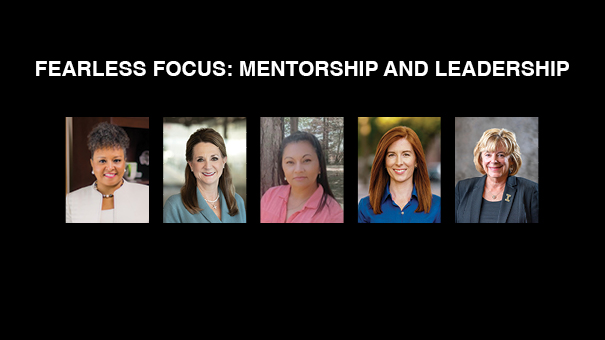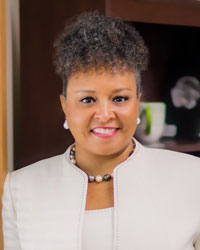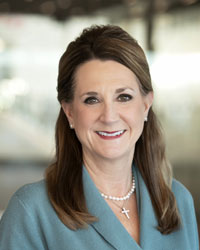Join Fearless for a discussion on mentorship and women in leadership

Our next, and final, Fearless Focus virtual event of 2024 will focus on leadership and mentorship. We will discuss the role mentors play in empowering women in the workplace.
Event details
Oct. 3 | Noon to 1 p.m. | Register for the free virtual event
Elevating more women into leadership roles is still a key priority for equity advocates. Mentorship has been seen as one solution to the barriers that women face in ascending to formal leadership positions. In this conversation, we will talk about the challenges women face in becoming leaders and how mentors can help guide the next generation. Hear advice on how to find a good mentor and how to be a good mentor. Come ready to be inspired and learn tips you can apply to your own career or community involvement.
Ahead of the event, we asked our speakers to answer a question to give you an idea of what you might hear in the discussion.
Question: What’s one strategy you believe will help create gender parity in leadership positions?

Bridget Cravens-Neely, CEO, Big Brothers Big Sisters of Central Iowa: There are several strategies related to building gender parity in leadership. I don’t know that I can narrow it down to just one. For example, understanding what motivates women and recognizing our value are two strategies that are important. Women have proven for decades that we have the mental and physical ability to handle leadership roles traditionally held by men, but we are still tested and required to prove we can handle tough decisions and that we are competitive enough. Studies show that women are more team-oriented, which means we will fight hard for the right cause. Other women hiring women into leadership is another strategy that needs to continue. Yes, there are men in positions of power who recognize our value and understand our motivations, but are they willing to invest in our advancement by choosing us for positions of power? I think we are in a time when we’ll see.

Monica Friedman, chief human resources officer, LCS: Gender parity comes from an intentional focus and approach that combines several key efforts starting early — and throughout — the employment process. Focusing on diverse candidate pools during recruitment can create a gender-balanced internal talent pipeline for leadership positions and future succession planning. Once great employees are in place, intention and balance throughout leadership development programs and cohorts will prepare diverse succession pipelines. I am also a strong believer in soliciting and listening to feedback. It is important to review turnover data to identify trends that may be negatively affecting retention and use employee engagement initiatives to actively seek and react to feedback to gauge if there are perceived barriers for individuals seeking to move into leadership roles. Senior leaders must identify where improvements can be made. It is imperative to understand those perceptions and communicate openly to address the concerns. Intentionality is key.

Emilia Marroquin, multicultural board member, SALUD: As a Latina woman, I feel a deep responsibility to help change this and advise organizations on how to get there. As part of their diversity, equity and inclusion commitments, companies and organizations should look for ways to constantly empower Hispanic women to pave their way toward leadership positions. When designing and evaluating programs, leaders must consider centering the experiences and voices of all participants. Recently, the community created a group called “Latinas Rising Together.” The main idea is to find new generations and mentor them. We want to remind everyone, at all levels of the endeavor, about the issues impacting our community and to come up with collective solutions to help tackle some of the challenges we all face.

Mollie Ross, vice president of operations, Technology Association of Iowa: One strategy successful organizations use is offering flexible work schedules for appropriate roles. This allows professionals to manage their time effectively without sacrificing career growth or personal priorities. However, flexibility should come with clear expectations, such as required hours or peak times, and open communication about potential limitations for advancement. By removing rigid schedules, organizations not only attract a broader talent pool but also reduce employee stress — both physically and mentally — leading to improved performance and engagement.

Barbara Wilson, president of the University of Iowa, will also serve as a speaker.

